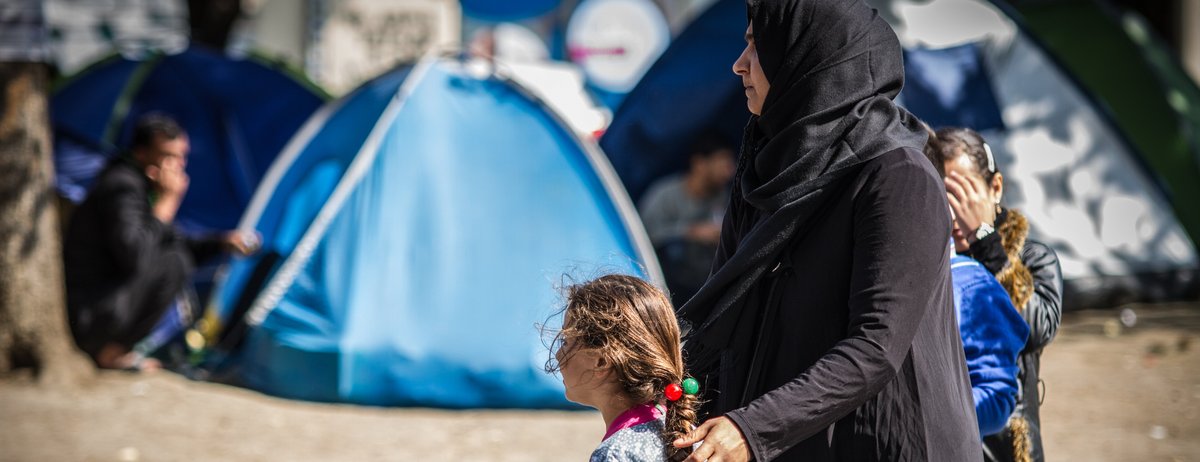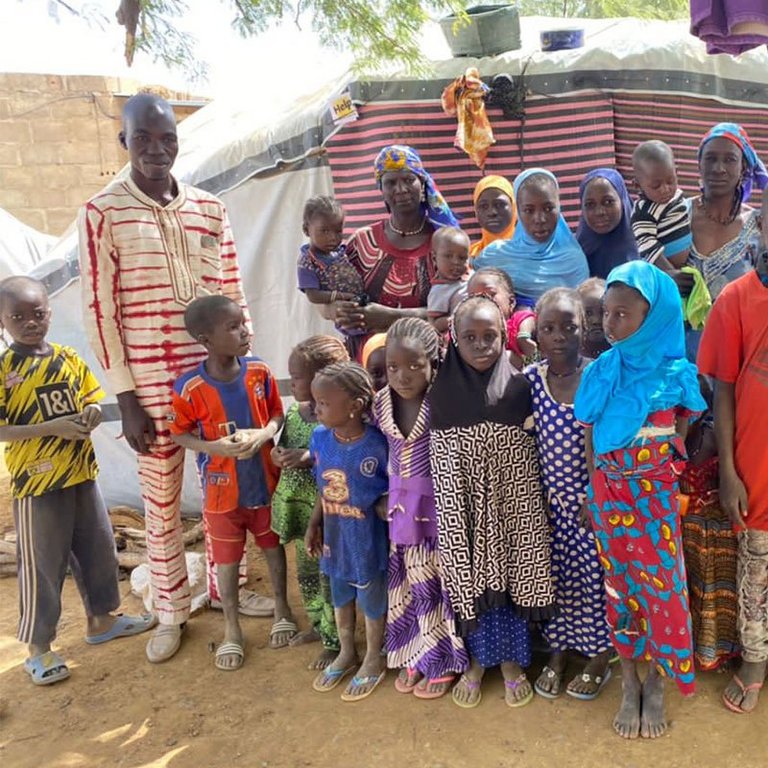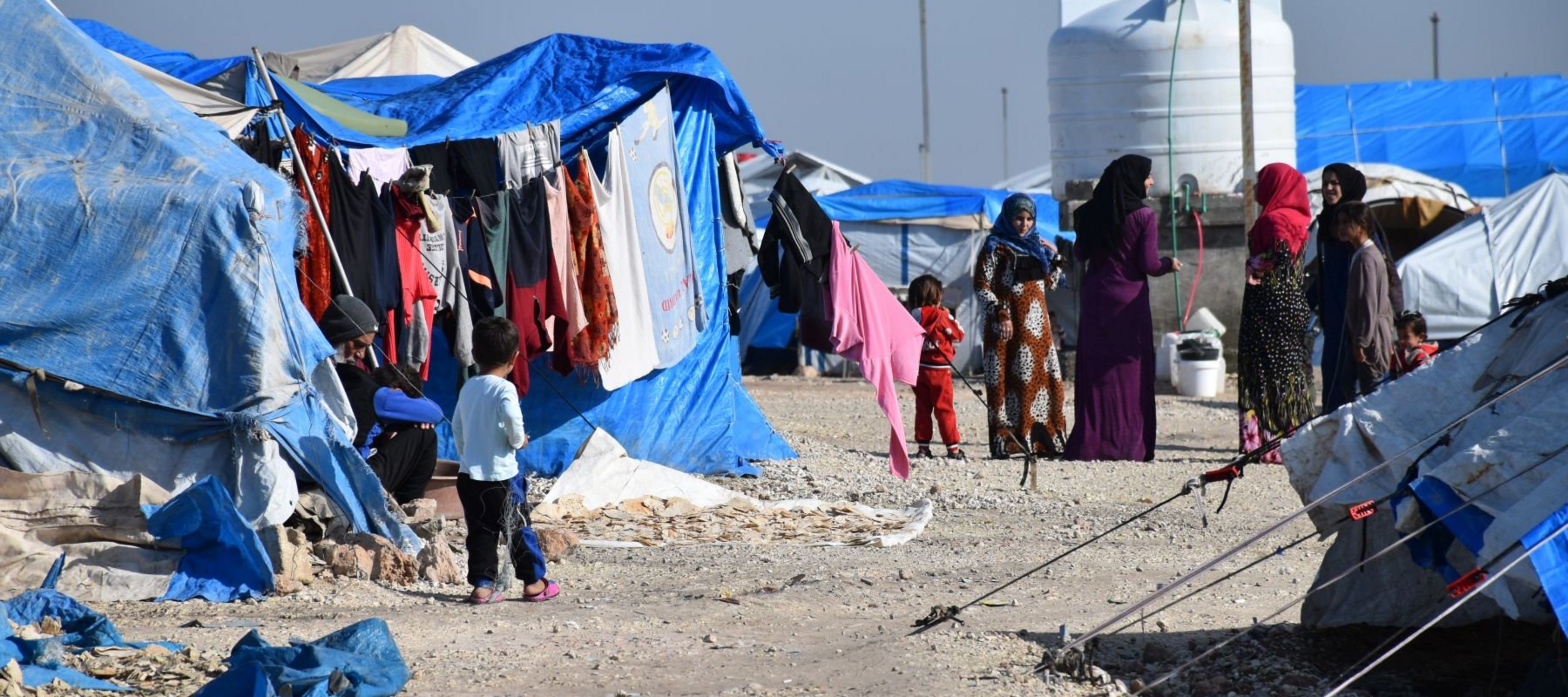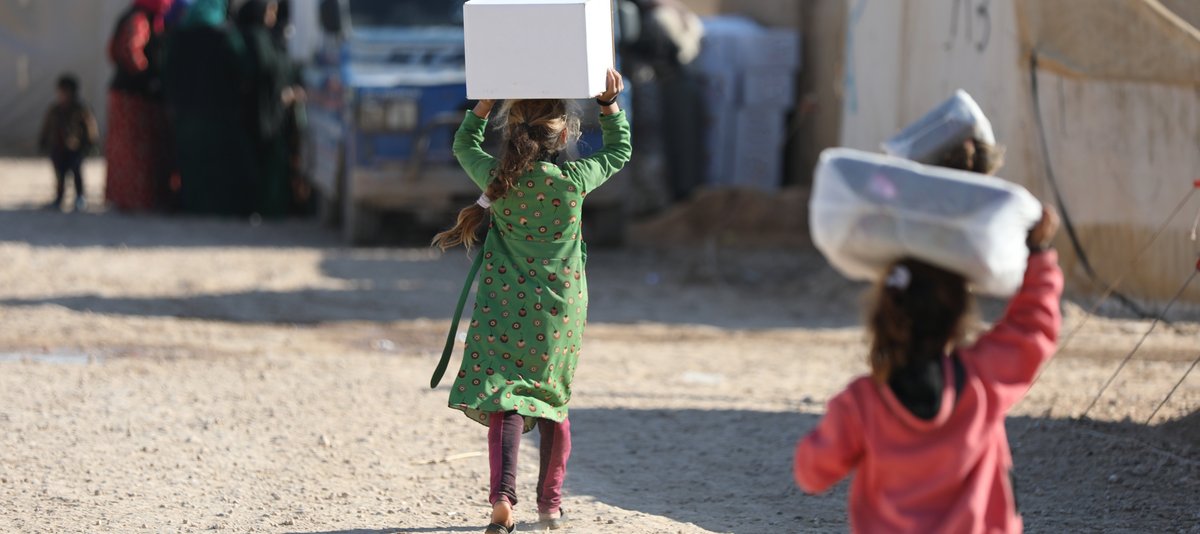Donate for refugees

Refugee relief
A sad record number: around 120 million people worldwide are displaced. Wars, persecution, hunger and natural disasters force them to leave their homes. Refugees often have to live in inhumane conditions in refugee camps.
Help is committed to helping refugees worldwide, currently for example through emergency aid for displaced persons in Ukraine or for Sudanese refugees in Chad. We also address the causes of displacement and create prospects.
Driven from their homeland
![[Translate to English:] Spenden Flüchtlinge: Flüchtlingshilfe in Syrien Ein Helfer verteilt Hilfsgüter an syrische Geflüchtete](/fileadmin/_processed_/b/8/csm_10-jahre-syrienkrieg-spenden_02_574e05a3b3.jpg)
On World Refugee Day on June 20, 2024, there is a sad record: around 120 million people are currently displaced. This means that the number of refugees has more than doubled in the last ten years. Over half of them (70 million) are fleeing within their home country. In this case, they are referred to as "internally displaced persons" or "IDPs".
What is alarming is that the majority of refugees come from just five countries: Afghanistan, Syria, Venezuela, Ukraine and Sudan account for 73 percent of refugees worldwide, according to the United Nations. A cruel civil war has been raging in Syria since 2011. Around 13 million Syrians have been displaced from their homes - 6.4 million of them have had to leave the country. Help provides internally displaced persons with hygiene packages, among other things.
As a result of the outbreak of war, the number of refugees from Sudan rose to around 1.5 million in 2023. Almost one million Sudanese are seeking refuge in neighboring Chad. There, Help provides those affected with access to drinking water.
Experts assume that the number of refugees will continue to rise in the future. The climate crisis in particular is forcing more and more people to leave their homes, as the number of droughts, floods and tropical storms is steadily increasing. As a result, 140 million climate refugees are expected by 2050.
How does Help support refugees?
Worldwide commitment to refugees in need
![[Translate to English:] Spenden Flüchtlinge: Flüchtlinge in Burkina Faso Eine Frau vor ihrem Sahelzelt in einem Flüchtlingslager in Burkina Faso](/fileadmin/_processed_/0/5/csm_burkina-faso-nothilfe_200205_05_47cf99778f.jpg)
Help's refugee aid has two approaches: On the one hand, we provide emergency aid for acute refugee movements, for example by providing food, water, hygiene articles, medicines and emergency accommodation. In this way, we help people on the move with the bare necessities and ensure their survival.
We also combat the causes of displacement in countries that are or have been affected by crises. We do this, for example, by rebuilding after wars and conflicts, by providing support in overcoming the climate crisis and through income-generating measures. Together with the people in the affected regions, we work on ways to improve local living conditions in order to reduce potential causes of displacement.
We are currently helping displaced families in Ukraine and providing refugee aid for Ukrainian refugees in Moldova, Bosnia & Herzegovina and Montenegro. As part of our winter aid, we provide displaced families in Afghanistan and Syria with warm clothing, shoes and blankets. Help is also involved in West Africa, for example in Burkina Faso and Mali, helping families who have had to flee violent attacks on their home villages.
Displaced in Burkina Faso

Hamadou Barry comes from Burkina Faso, a country where over 2 million people are fleeing violence. He has taken in 100 displaced people all by himself, including many children, because he says that it can happen to anyone: "Today it's them, tomorrow it could be us. Nobody leaves their home voluntarily, but sometimes it's a matter of life and death".
Help has supported Hamadou with emergency accommodation, latrines, blankets and crockery. Now it is important to give the refugees initial help so that they can lead a self-determined life again.





